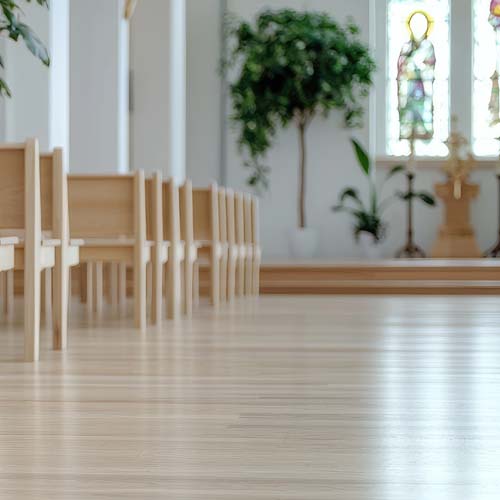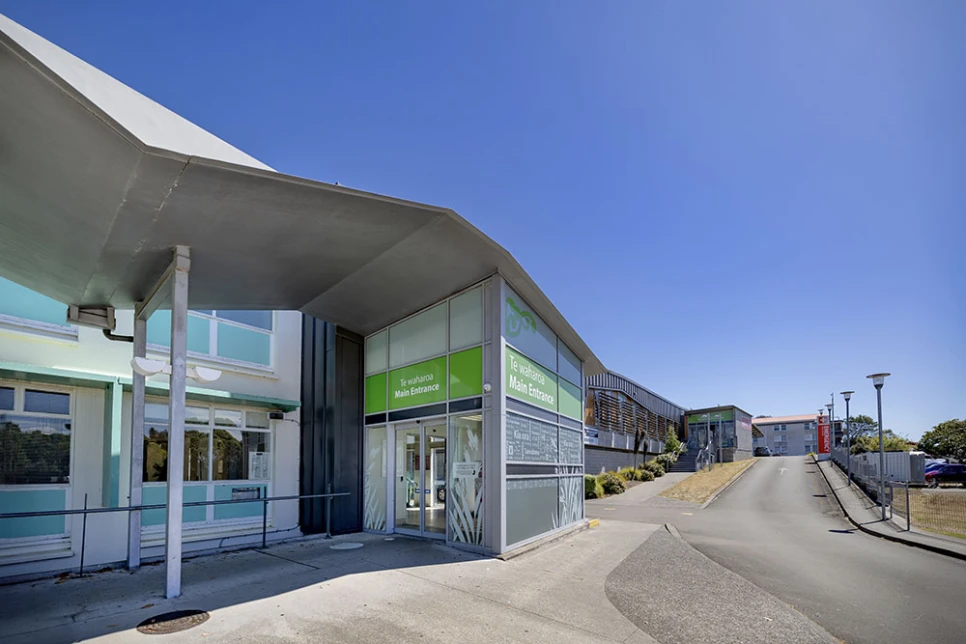On this page
- Whanganui Hospital emergency department (ED)
- After hours and urgent medical centres
- Hospital contact information
- Visiting hours
- Patient and visitor information
- How to get to the hospital
- Parking information
- Facilities
- Departments and services
- Maps
- Find a service in the Whanganui region
- Your stay in hospital
- Feedback
After hours and urgent medical centres
If your health emergency is not life threatening, but you cannot wait for an appointment with your usual doctor or healthcare provider, go to an after hours or urgent medical centre. They can help you with things like bad cuts, sprains or breaks, minor head injuries, or if you are feeling really sick. You do not need an appointment but might have to wait.
Whanganui Accident and Medical is an urgent care clinic co-located within Whanganui Hospital's Emergency Department.
They are open 8am to 8pm, every day.
Whanganui Accident & Medicalexternal link
There are no accident and emergency urgent care clinics in the rural part of the Whanganui region.
For:
- general healthcare call Ka Ora Telecare on 0800 252 672, available after 5pm weekdays and 24/7 weekends
- urgent care go to Whanganui Accident and Medical
- critical or life-threatening emergencies go to the Whanganui Hospital emergency department or dial 111.
Rural telehealth care — Ka Ora Telecare
There are 2 after hours pharmacy services in Whanganui.
Unichem Whanganui Pharmacy
- 36 Fitzherbert Avenue
- Whanganui
Chemist Warehouse Whanganui
- 79 Victoria Avenue
- Whanganui
Find pharmacies in the Whanganui regionexternal link
Hospital contact information
General enquiries: 06 348 1234
Specific department and ward contact details are found under the 'Departments and services' section below.
Physical address:
- 100 Heads Road
- Whanganui 4501
Postal address:
- Te Whatu Ora Whanganui
- Private Bag 3003
- Whanganui 4540
For general health record queries either:
- call 06 348 1245 8am to 4:30pm, Monday to Friday
- email clinicalrecordsrequest@wdhb.org.nz
Release of personal health information request formPDF332 KB
For mental health record queries either:
- call 06 348 3474 8am to 4:30pm, Monday to Friday
- email mentalhealth.privacyrequests@wdhb.org.nz
Health New Zealand | Te Whatu Ora has a broad privacy statement to inform you of how we handle personal and health information while you are in our care.
Privacy statement — Health New Zealand | Te Whatu Ora
For information on patient travel and allowances call 06 348 1245 8am to 4:30pm, Monday to Friday.
Contact us for media enquiries and Official Information Act requests.
Media centre — Health New Zealand | Te Whatu Oraexternal link
Visiting hours
Whanganui Hospital visiting hours are 8am to 8pm, 7 days a week.
Whānau can be nominated to support patients and hāpū whānau, outside of usual visiting hours, by making arrangements with the nursing or midwifery team. Talk to the team to find out more.
Patient and visitor information
Language interpreters
If you need a language interpreter let our staff know. They can assist with booking an interpreter for your appointment through Interpreting New Zealand.
Interpreters are not always available at short notice so give as much notice as possible.
Interpreting New Zealandexternal link
Contact us on 06 348 1234 to let us know about your disability needs, so we can support you during our hospital visit.
NZSL interpreters
If you need an NZSL interpreter let our staff know before your visit as interpreters are not always available at short notice.
Accessibility needs
- Wheelchairs are located inside the foyer of the main entrance. If you need a wheelchair and none are available, please ask a volunteer or at any reception desk and they will find one for you.
- Our volunteers welcome and assist people at Whanganui Hospital's main entrance most mornings and some afternoons. Please feel free to ask them for support.
- Lifts are available for all floors.
- Accessible toilet facilities are located in all publicly accessed buildings.
- Wheelchair accessible dining facilities are available in the café near the main entrance and the Top Café on Gate 2. Please ask for assistance at the counter.
- We welcome appropriately certified canine aides.
My Health Passport
To save you repeating information to your doctor or health and disability services, use My Health Passport. It explains how you want health professionals to communicate with you and help you.
The passport is a booklet you fill out and take with you to visit health and disability services.
My Health Passport — Health and Disability Commissionerexternal link
Te Hau Ranga Ora Māori Health Service operate 3 whare.
To book accommodation call 06 348 1234and ask to speak with the on call haumoana navigator.
Mauri Ora whānau accommodation
A whare for emergency and temporary accommodation for out-of-town whānau.
Mauri Ora information brochurePDF1.1 MB
Te Whakatau Mate
A whare to support families who experience the sudden loss of a whānau member.
Te Piringa Whānau
A whare that supports whānau-centred care through education, wānanga and hui.
The hospital and grounds are all smoke and vape free areas. If you are a patient we can help with nicotine replacement therapy.
Patients are given 3 meals a day which are selected from a menu the day before. Menus include choices for specialised diets, including diabetic and vegetarian choices.
Meal times are approximately:
- Breakfast: 7am
- Lunch: 12pm (midday)
- Dinner: 5:15pm
A drinks trolley comes around at meal times and at morning and afternoon tea time. This service is just for patients.
Tautoko mai | Your support would be welcome.
Health NZ encourages whānau support for people receiving care at Whanganui Hospital.
We know that whānau play an important role in supporting patients and they have a positive impact on a patient’s wellbeing and recovery. This makes whānau essential partners in a patient’s health care experience – reassuring, advocating for or supporting them in lots of ways.
Whānau can be nominated to support patients and hāpū whānau, outside of usual visiting hours, by making arrangements with the nursing or midwifery team. Nominated whānau could be a partner, family member, parent or guardian, friend or carer.
Talk to our nursing or midwifery team to find out more.
How to get to the hospital
By bus
There are bus services that stop at Whanganui Hospital.
Bus timetables and fares — Horizons Regional Councilexternal link
By health shuttle
St John's Waka Ora health shuttle is available to take patients to and from some rural areas to appointments at Whanganui Hospital.
These shuttles are run by volunteers and are subject to changing schedules.
They are available in the following areas:
- Marton and surrounds
- Waimarino and surrounds, including Ohakune and Raetihi.
Find out about shuttle times in your area on the St John website, or by calling them on on 0800 925 2672
Waka Ora Health Shuttles — St Johnexternal link
National Travel Assistance
The National Travel Assistance Scheme helps people who need to travel long distances or travel frequently for health appointments.
Parking information
Access to car parks for the main and emergency entrances is via Gate 1 on Heads Road.
Access to car parks for Building C Te Āwhina, Building E Te Whare Kākāriki, Building F Lambie and Building G Te Kōpae is through Gate 2 on Heads Road.
Parking is free at Whanganui Hospital.
Mobility drop-off zone
There are mobility vehicle drop-off zones for patients and visitors at:
- the main entrance to the hospital
- the entrance to the emergency department and Whanganui Accident and Medical (WAM).
There is also drop off space outside buildings accessed through Gate 2.
Mobility parking
Whanganui Hospital has 23 designated parking spaces for people with a mobility parking permit. These car parks are available in key areas within the hospital public parking areas. You will need to display your permit.
Mobility parking spaces:
- 11 in the car park next to the main entrance.
- 2 beside the bus stop.
- 3 at the emergency entrance near the ambulance bay.
- 1 in the car park at Building C, Te Āwhina.
- 2 in front of the doors of Building E, Te Whare Kākāriki.
- 2 opposite the doors of Building F, Lambie.
- 2 near the doors of Building G, Te Kōpae.
Facilities
Cafés
Espresso Plus Café
Located in the foyer of the main entrance of the hospital.
Opening hours: 7:30am to 4pm, Monday to Friday.
Top Café
Located next to the Lambie Building.
Opening hours: 8am to 7pm, Monday to Friday.

Pharmacy
The pharmacy supplies medication to all wards and departments in our hospital. A pharmacist will come to your bedside to:
- check your medical history
- monitor and check your prescriptions
- ensure you have been prescribed the correct medication and dose
- check any allergies you may have
- check for any drug interactions
- liaise with your regular pharmacist to notify them of any changes to your medications.
During this one-on-one consultation the pharmacist will:
- discuss what medication you are currently taking
- discuss any unwanted side-effects you may be experiencing
- discuss any new or changed medications
- listen to any concerns you may have about your medications
- advise how you can get the best out of your medication.

Chapel and chaplains
Chaplains
We have 2 Chaplains who visit the wards regularly. They can mediate for and counsel patients and their families on spiritual concerns and offer prayer, spiritual guidance and the sacraments.
An Ecumenical Chaplain is available to all patients, no matter their beliefs. The Chaplain, or his locum, are on call 24 hours a day.
A Roman Catholic Chaplain is available to those of this belief. A Catholic parish priest may be called in if the Chaplain is unavailable.
Chapel
The chapel is located on the first floor and is open at all times for reflection and quiet retreat. Services are held at 10am each Sunday. If you would like to attend, please tell your nurse early on Sunday morning. A hearing aid induction loop area is included in the chapel.

Justice of the peace
Justice of the Peace (JPs) are are available to help you with:
- witnessing signatures
- certifying documents
- the witnessing of land transfers and other documents
- the taking of declarations, affidavits or affirmations.
If you need the help of a JP, ask a staff member.
Patient meals
All meals are provided, and patients are given a menu to select from. If you have any special requirements chat to our staff.
Meal times are approximately:
- 7am for breakfast
- 12pm for lunch
- 5:15pm for dinner.
WiFi
Patients and visitors can use Inspire Net's free wi-fi while in the hospital grounds.
- Go to your device's WiFi options.
- Make sure your WiFi is turned on.
- Select 'WDHB_FreeWiFi_by_InspireNet' from the available networks.
- Once connected, you should receive the 'landing page' (portal.wdhb.inspire.net.nz)
- Select the 'Accept' button.
